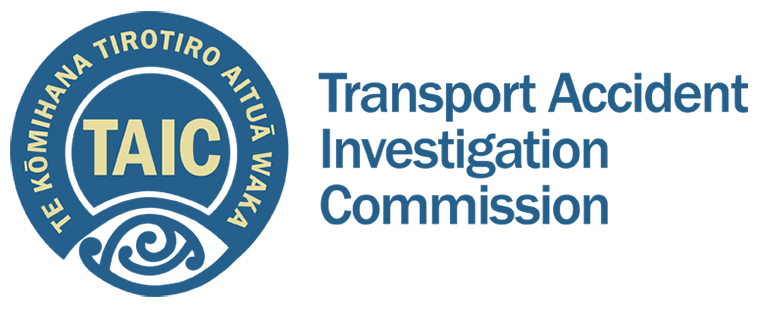The Transport Accident Investigation Commission’s job is to explain, not to lay blame. The law prevents Commission evidence and reports from being used in regulatory, criminal or civil proceedings (except for a Coroner’s inquest). These protections encourage free and frank contributions to a Commission inquiry. This page has important information for people and organisations assisting an inquiry.
Interviews
The Commission and its authorised investigators have powers of entry, inspection, seizure, protection of evidence, and to summons witnesses. If Commission investigators choose to conduct an interview or request evidence, they will first present their identification and explain the process and protections.
Interviewees are welcome to have a support person with them, but the support person should not be another witness, and they cannot join in the discussion.
The investigator helps the interviewee to recall and describe relevant background, and what happened before, during and after the event.
Interviews are usually recorded to help ensure accuracy and to let the interviewer concentrate on what is being said. You may ask for a copy of the interview recording, and you may clarify or add to what you have said at any time.
The content of interviews are protected records under the TAIC Act 1990, explained in the next section. If an investigator shares any evidence with you, the law prevents you from further sharing that evidence with others. In other words, you can talk about what you said to us; but you can’t talk about other evidence or information we shared with you during your interview. This also applies to sharing any recording of an interview.
Any refusal to assist a Commission inquiry may result in the issue of a summons. Failure to comply with a summons is an offence.
Evidence may be inspected, taken or protected
TAIC investigators have warranted powers to enter the site; inspect any transport related thing; inspect, copy or take documents; restrict access to preserve evidence; to seize, detain, remove, preserve, protect, or to test any transport related place or thing. Entry to a private dwelling or marae must be by invitation or judicial warrant.
Investigators offer a receipt for any original documents or physical evidence which you provide to an investigator.
Witnesses may be asked to give evidence on oath or at a formal hearing. This would usually be later in the inquiry if a contentious issue has arisen. If suitable arrangements cannot be agreed, a person may be summonsed to appear before the Commission.
The evidence the Commission gathers (including interviews) and inquiry documents are protected (by the TAIC Act 1990) from disclosure except for the purposes of the investigation, or as the result of a High Court order. TAIC is prohibited from discussing witness statements, test results, expert opinions, and other protected evidence, except for physical evidence they may need to examine. The Commission’s reports cannot be used in regulatory, criminal or civil proceedings (except to assist a Coroner’s inquest).
Consultation on a draft inquiry report
The Commission’s final published inquiry report will: set out and analyse the facts of the event, identify contributing factors, identify the safety lessons, note safety actions taken since the event, and make recommendations to reduce the risk of something similar happening again. A Commission report includes only information that is necessary for the purpose of the report. If a Commission report mentions an individual, it will be by their role and not by name.
The Final Report is produced only after confidential consultation on a Draft Report. If the Draft Report states or infers that a person’s conduct contributed to the cause of the accident or incident, then the Commission will give that person or their formal representative the opportunity to comment. At the time that it approves the Draft Report, the Commission specifies who it is required to consult under the Transport Accident Investigation Commission Act (section 14(5)). The time given for response varies but is rarely less than three weeks.
When sending the document for consultation, the Commission provides formal guidance on how the IN CONFIDENCE document must be handled – for example, there will be restrictions on who may see it and discuss it. This is to ensure everyone complies with the strict legal requirements protecting draft reports. These protections never expire, even after a Final Report is published.
Depending upon the circumstances and content, similar consultation may take place for any urgent recommendations or interim reports issued while the inquiry continues.
We keep in touch
We ensure everyone involved has a contact point at TAIC. For people who were closely involved in events, we will be in contact when the inquiry reaches key milestones.
Helping us do better
Your TAIC contact is always willing to pass on your feedback, or you can give it through our website.
Further information
The pages in the How We Work section of our website expand on some of the topics above. If you are assisting an inquiry as a representative of an accident fatality then Keeping survivors and families informed is also relevant.
